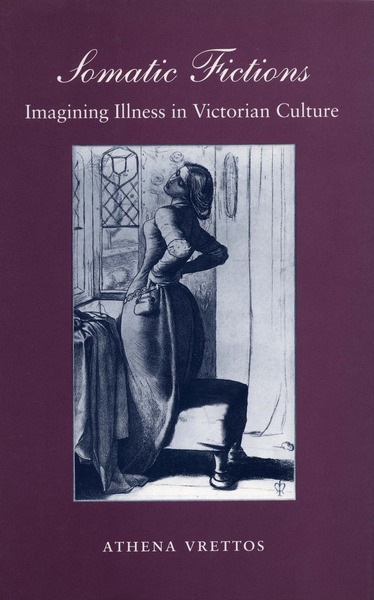
1995
264 pages.
from $30.00
Hardcover ISBN: 9780804724241
Paperback ISBN: 9780804725330
Ebook ISBN: 9780804764636
Somatic Fictions focuses on the centrality of illness—particularly psycho-somatic illness—as an imaginative construct in Victorian culture, emphasizing how it shaped the terms through which people perceived relationships between body and mind, self and other, private and public. Vrettos uses nineteenth-century fiction, diaries, medical treatises, and health advice manuals to examine how Victorians tried to understand and control their world through a process of physiological and pathological definition. Tracing the concept of illness in the work of a variety of novelists—Charlotte Brontë, Elizabeth Gaskell, George Eliot, Henry James, Louisa May Alcott, Harriet Beecher Stowe, George Meredith, Bram Stoker, and H. Rider Haggard—she explores the historical assumptions, patterns of perception, and structures of belief that invested sick and heat with cultural meaning.
Illness, with its power to make one's body seem alien, or to link disparate groups of people through contagion, suggested to Victorians the potential instability of social and biological identities. Displacing chaotic social issues onto matters of physiology, they managed a variety of social issues, including questions of race, imperialism, anthropometry, and health. This book explores how Victorian narrative registers fears of psychic and somatic permeability, sympathetic identification with another's pain, and conflicting measures of racial and cultural fitness.
About the author
"Vretto's purpose in this thoroughly researched and extensively documented study is 'to analyze the complex interaction between 19th-Century medical theory and narrative discourse'. . . . Vretto's reading includes a wide range of materials (particularly nonliterary texts). An impressive work of both scholarship and criticism."
—Choice